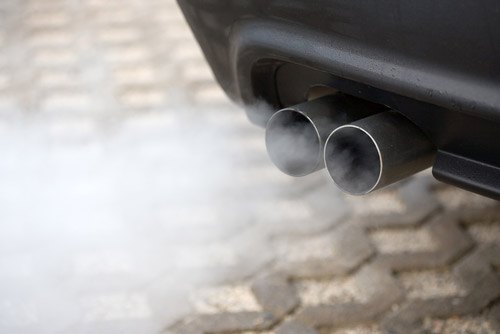War Of The Noses: Germany, Alone Against The Rest Of Europe In CO2 Debate

Senior members of the German government are leaning heavily on EU member states, warning “that German automakers could scale back or scrap production plans in their countries unless they support weakened carbon emissions rules,” Reuters writes. Cabinet members are said to focus their strong-arming on EU countries that recently have been bailed-out, mostly with German money. “They have tried everything at the highest level to pressure member states, in particular countries in the bailout club, to support their proposals,” a diplomat told Reuters. The EU Parliament is set to finalize rules that set a 95g CO2 / km limit by 2020.
The fight however seems not so much a quest for cleaner air than an underhanded fight for more breathing room for the auto industries of some member states.
Germany’s warnings that stricter limits could cost jobs go mostly unheeded. They resonate only with “a handful of central European countries with domestic auto production, but France, Britain and Italy are opposed,“ EU sources tell Reuters.
At first glance, one would think that the latter countries should have even more interest in keeping assembly lines humming than relatively well-off Germany. The truth is one level deeper. The 95g target hits first and foremost the makers of bigger bore nameplates, and those are predominately in Germany: Daimler, BMW, Audi, Porsche. Much to the chagrin of other countries and automakers, the Germans are not as much affected by the European malaise than other countries, but they would get disproportionally socked by the 95g rule. Makers of smaller displacement cars welcome anything to cut the haughty Germans down to size. “Making less-polluting cars is costly and restricts profit margins, which is why major German manufacturers want to delay the stricter rules,” says Reuters. And that’s why other countries can’t wait.
Their goal is to bleed off profits and resources from competiors, and possibly to put companies like Daimler in serious trouble. Ad if it’s under the green guise of a cleaner planet, even better. Who can say nein to that?

Bertel Schmitt comes back to journalism after taking a 35 year break in advertising and marketing. He ran and owned advertising agencies in Duesseldorf, Germany, and New York City. Volkswagen A.G. was Bertel's most important corporate account. Schmitt's advertising and marketing career touched many corners of the industry with a special focus on automotive products and services. Since 2004, he lives in Japan and China with his wife <a href="http://www.tomokoandbertel.com"> Tomoko </a>. Bertel Schmitt is a founding board member of the <a href="http://www.offshoresuperseries.com"> Offshore Super Series </a>, an American offshore powerboat racing organization. He is co-owner of the racing team Typhoon.
More by Bertel Schmitt
Latest Car Reviews
Read moreLatest Product Reviews
Read moreRecent Comments
- SCE to AUX All that lift makes for an easy rollover of your $70k truck.
- SCE to AUX My son cross-shopped the RAV4 and Model Y, then bought the Y. To their surprise, they hated the RAV4.
- SCE to AUX I'm already driving the cheap EV (19 Ioniq EV).$30k MSRP in late 2018, $23k after subsidy at lease (no tax hassle)$549/year insurance$40 in electricity to drive 1000 miles/month66k miles, no range lossAffordable 16" tiresVirtually no maintenance expensesHyundai (for example) has dramatically cut prices on their EVs, so you can get a 361-mile Ioniq 6 in the high 30s right now.But ask me if I'd go to the Subaru brand if one was affordable, and the answer is no.
- David Murilee Martin, These Toyota Vans were absolute garbage. As the labor even basic service cost 400% as much as servicing a VW Vanagon or American minivan. A skilled Toyota tech would take about 2.5 hours just to change the air cleaner. Also they also broke often, as they overheated and warped the engine and boiled the automatic transmission...
- Marcr My wife and I mostly work from home (or use public transit), the kid is grown, and we no longer do road trips of more than 150 miles or so. Our one car mostly gets used for local errands and the occasional airport pickup. The first non-Tesla, non-Mini, non-Fiat, non-Kia/Hyundai, non-GM (I do have my biases) small fun-to-drive hatchback EV with 200+ mile range, instrument display behind the wheel where it belongs and actual knobs for oft-used functions for under $35K will get our money. What we really want is a proper 21st century equivalent of the original Honda Civic. The Volvo EX30 is close and may end up being the compromise choice.


































Comments
Join the conversation
What a great example of the perils of outsourcing your domestic industry (and by extension, your sovereignty) to the whims of foreign-headquartered multinationals. "Their goal is to bleed off profits and resources from competiors, and possibly to put companies like Daimler in serious trouble." Hilarious, because that's been the goal of the Germans for years. You could replace Daimler with Chrysler in that sentence, and it would actually have a kernel of truth in it. One public policy initiative that may or may not threaten German economic hegemony, and we never hear the end of it. As if the people of the EU have absolutely no right, through their duly elected representatives, to even debate initiatives that could stick in the craw of German corporate boards.
The only cars that can meet this are plug-in hybrids and $hit boxes with ~1 liter engines. This is a fine limit if you only ever transport yourself and no belongings. Which I suppose is OK, because when the watermelon regulators are finished, no one in the EU will have any belongings to transport anyway. What's next, a tax on breathing? How about a tax credit for your next of kin if you off yourself? Idiots.